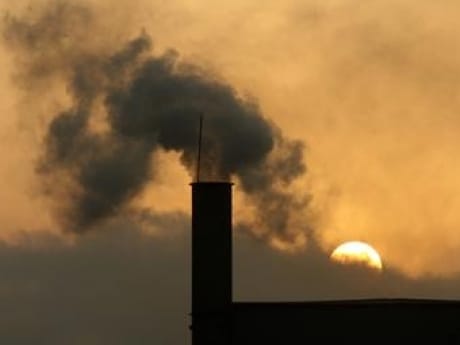Prop 23 vs. AB 32: the battle heats up


When it comes to energy policy, California has either been on the cutting edge or teetering on the brink of collapse, depending on your political affiliation. Governor Schwarzenegger has made the cutting of greenhouse gas emissions a priority, making him one of two Republican governors to do so, and has received warm accolades from the Federal government for his efforts.
However, at the same time, the upcoming election’s indicators suggest a potential rollback of the energy policy propounded by Schwarzenegger due to its association with the unpopular present administration.
Enter Proposition 23, a measure designed to stay all the emissions restrictions put into place by AB 32. The measure is naturally controversial and has even trickled up to the Governors’ race. Politico reports:
“Nowhere is the battle more intense than in California, where Democratic Attorney General Jerry Brown and Republican Meg Whitman are at odds over the state’s landmark law to reduce heat-trapping emissions to 1990 levels by 2020.
Whitman favors a one-year suspension of the law, known as AB 32, to give the state’s economy time to recover from the recession. The former eBay chief executive said last fall that the climate law, which Republican Gov. Arnold Schwarzenegger signed in 2006, “may have been well-intentioned, but it is wrong for these challenging times.”
Brown’s campaign has seized on Whitman’s rightward shift during her heated GOP primary, which waded into doubts on the science of global warming. And his campaign said Whitman is waffling when it comes to her views on a separate ballot initiative — funded by out-of-state oil company interests — that would halt AB 32 unless there’s a dramatic economic turnaround.
“We’re opposed to climate change, and Meg Whitman isn’t sure it’s real,” said Brown spokesman Sterling Clifford. “That’s the critical distinction on that issue.”
Yet, despite Proposition 23’s environmentally unfriendly effect, the California Secretary of State says its effects could be beneficial in the short run. Its legislative analyst’s summary lists the following effects:
“Potential positive, short-term impacts on state and local government revenues from the suspension of regulatory activity, with uncertain longer-run impacts. Potential foregone state revenues from the auctioning of emission allowances by state government, by suspending the future implementation of cap-and-trade regulations.”
The question, then, from an economic perspective as well as from a political perspective, is whether voters value economic growth or revenue-raising capability in this election cycle. Given the recession, the economic growth outcome seems more likely, but given California’s troubled history with budgets, this is not a preordained conclusion.
As such, one should be prepared to see the proponents of Proposition 23 emphasizing its potential to stop job stagnation, while its opponents could tout the revenue-raising effects of AB 32 as yet another advantage besides its environmental impact.
Depending on the effectiveness of these respective tactics, they will likely affect the gubernatorial race as well.



